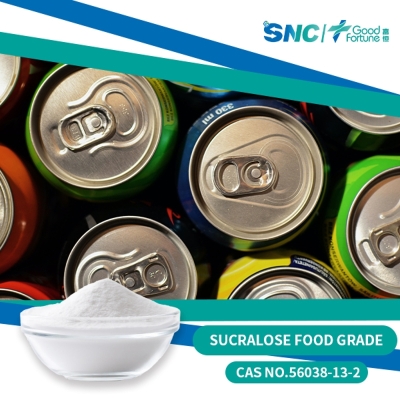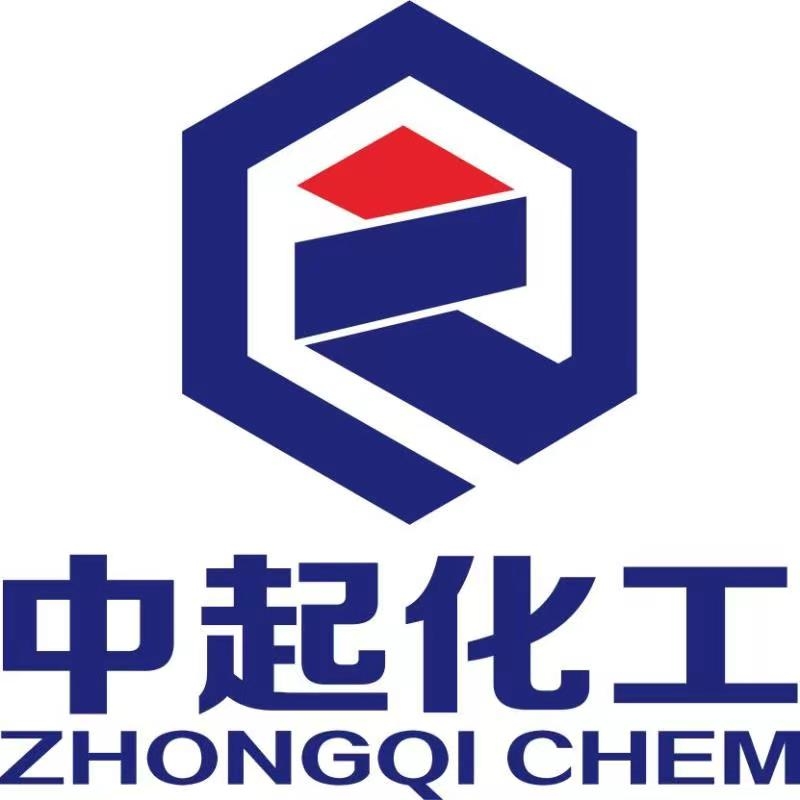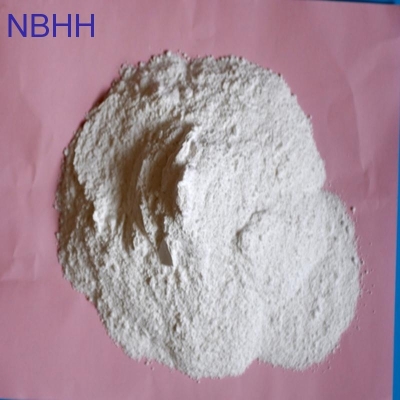-
Categories
-
Pharmaceutical Intermediates
-
Active Pharmaceutical Ingredients
-
Food Additives
- Industrial Coatings
- Agrochemicals
- Dyes and Pigments
- Surfactant
- Flavors and Fragrances
- Chemical Reagents
- Catalyst and Auxiliary
- Natural Products
- Inorganic Chemistry
-
Organic Chemistry
-
Biochemical Engineering
- Analytical Chemistry
-
Cosmetic Ingredient
- Water Treatment Chemical
-
Pharmaceutical Intermediates
Promotion
ECHEMI Mall
Wholesale
Weekly Price
Exhibition
News
-
Trade Service
Original title: Sugar-free drinks, is it really an IQ tax?
September 11, 2021, Beijing
September 11, 2021, Beijing
In order to drink "happy water" with peace of mind, consumers began to study the sugar substitutes in the ingredient list
In order to drink a sip of "happy water", we escaped the "high sugar hazard theory" and ushered in the "bad sugar theory" of sugar substitutes
In recent years, "low-sugarism" has become the choice of young Chinese.
Humans have been using sugar substitutes for 143 years
The evolution of sweeteners, from cyclamate to neotame, has been accompanied by controversy, and scientists have always looked for a link between dose and toxicity
Some people say that the "artificial sugar substitute is harmless theory" is shouted by the sugar substitute industry, and some people think that the "artificial sugar substitute is harmful theory" is a Jedi counterattack of the sucrose industry
How to control sugar healthily? Consumers need to view the advantages and risks of sugar and sugar substitutes objectively and rationally according to their personal physical conditions, consciously control the intake of sugar, and implement a reasonable diet
From high sugar to no sugar From high sugar to no sugar From high sugar to no sugar
More than 40,000 people are monitoring each other in groups such as Douban "Today I also insisted on not drinking sugar-sweetened beverages" and "No Added Sugar Food Research Institute".
More than 40,000 people are monitoring each other in groups such as Douban "Today I also insisted on not drinking sugar-sweetened beverages" and "No Added Sugar Food Research Institute".
A 500ml bottle of Coca-Cola contains 53 grams of sugar, and 3 grams is a scoop, which is about 18 scoops of sugar
According to the World Health Organization's healthy eating recommendations, normal-weight adults should consume no more than 50 grams of free sugars per day, preferably within 25 grams
Contemporary young people have become accustomed to consciously controlling their sugar intake
Contemporary young people have become accustomed to consciously controlling their sugar intake
The so-called free sugars refer to monosaccharides and disaccharides added to food by manufacturers, cooks or consumers, and also include sugars naturally present in honey, syrup, and fruit juice
The sugar content of a bottle of cola has exceeded the daily sugar intake of adults, not including the sugar in the morning bread, the afternoon cake, the potato chips before bed, and the juice you drink
.
When sugar is ubiquitous, how to avoid unknowingly consuming too much sugar may be more difficult than imagined
.
.
In 2022, the "Dietary Guidelines for Chinese Residents (2022)" issued by the Chinese Nutrition Society shows that the overweight and obesity rate of children and adolescents aged 6-17 has reached 19%, while the overweight and obesity rate of Chinese adult residents has exceeded 50%
.
.
Excessive intake of sugar-sweetened beverages increases the risk of obesity or weight gain in children and adults
.
.
Documentaries such as "Sugar: A New Generation of Health Killers", "A Movie About Sugar" and "Sweet Misery - A Toxic World" are all trying to uncover the massive sugar problem around the world
.
.
From different dimensions, they let consumers deeply understand that excessive consumption of sugar will cause various uncomfortable symptoms in our body
.
.
Chen Junshi, academician of the Chinese Academy of Engineering and general consultant of the National Center for Food Safety Risk Assessment, mentioned in his speech "Advocating Healthy Drinks - Sugar Reduction" that the key to the impact of sugar on the body is to eat more or less
.
.
As one of the three essential nutrients for the human body, sugar, like protein and fat, will only cause harm to health if it exceeds a reasonable intake
.
.
In order to control the intake of sugar from the source, beverage giants have thought of sugar substitutes
.
.
In 1963, the Coca-Cola Company launched the first diet soda, the Tab
.
.
In 1995, the company launched Diet Coke
.
.
Soon after, PepsiCo also launched Light Coke with sugar substitutes
.
.
However, in China, the development of sugar-free beverages has not been smooth sailing.
Before Nongfu Spring launched "Oriental Leaf" in 2011, many sugar-free teas appeared, but they were not accepted by the market
.
Before Nongfu Spring launched "Oriental Leaf" in 2011, many sugar-free teas appeared, but they were not accepted by the market
.
It was not until around 2016 that Yuanqi Forest successfully stimulated China's beverage market with soda sparkling water with "zero sugar, zero fat, and zero calories", and sugar-free beverages ushered in a stage of rapid development in China
.
.
When "sugar" becomes synonymous with unhealthy, will sugar substitute usher in new development opportunities?
When "sugar" becomes synonymous with unhealthy, will sugar substitute usher in new development opportunities?Sweeteners "Bad Sugar Says"
Sweeteners "Bad Sugar Says" Sweeteners "Bad Sugar Says"Sugar substitutes in diet drinks are food additives that provide only sweetness and no or very few calories
.
There are many types of sugar substitutes, which are divided into nutritive sweeteners and non-nutritive sweeteners according to whether they generate calories.
Non-calorie non-nutritive sweeteners are further divided into artificial sweeteners and natural sweeteners
.
Among them, acesulfame potassium, aspartame, and sucralose, which are common in the beverage ingredient list, are all artificial sweeteners
.
.
There are many types of sugar substitutes, which are divided into nutritive sweeteners and non-nutritive sweeteners according to whether they generate calories.
Non-calorie non-nutritive sweeteners are further divided into artificial sweeteners and natural sweeteners
.
Among them, acesulfame potassium, aspartame, and sucralose, which are common in the beverage ingredient list, are all artificial sweeteners
.
According to GB28050-2011 "National Food Safety Standard Prepackaged Food Nutrition Labeling General Rules", the sugar content in food is less than 0.
5g/100g (solid) or 0.
5g/100mL (liquid), can be classified as "sugar-free food" "
.
5g/100g (solid) or 0.
5g/100mL (liquid), can be classified as "sugar-free food" "
.
From this point of view, not all sugar-free beverages are "zero sugar", and consumers need to check the ingredient list and nutrition list before purchasing
.
.
When you drink "Happy Water" "tons and tons" and the artificial sweetener touches your tongue, the sweet taste will activate dopamine in your brain, and you will feel the happiness obtained for a short time.
At this time, your blood sugar is stable, Insulin is not secreted, and the glucose in the cells is not converted into fat
.
At this time, your blood sugar is stable, Insulin is not secreted, and the glucose in the cells is not converted into fat
.
The biggest advantage of artificial sweeteners is high sweetness and no calorie production
.
.
Therefore, under the trend of sugar control and sugar reduction, artificial sweeteners have become one of the most important ingredients in sugar-free beverages
.
.
"Low-sugarism" makes Coca-Cola no longer satisfied with the taste of classic styles
.
/Unsplash
.
/Unsplash
In addition to being sweet, artificial sweeteners and sugars have completely different molecular structures, or can be said to be unrelated
.
.
In 1879, the first generation of artificial sweetener saccharin was born, then from sodium cyclamate, aspartame, acesulfame potassium, sucralose, to the emergence of the sixth generation of artificial sweetener neotame in 1993.
Research has gone through 143 years of history
.
Research has gone through 143 years of history
.
Since the birth of saccharin, artificial sweeteners have been accompanied by huge controversy, and researchers have been worried about its safety
.
.
Over the years, they have conducted research through animal experiments and human tracking
.
.
In the 1970s, the National Cancer Institute found that saccharin saccharin caused bladder cancer in experimental rats, but later found that the mechanism by which saccharin saccharin causes cancer in rats does not exist in humans; 2013, "American Clinical Nutrition" A report published in the Journal of Science pointed out that after a 14-year research survey of 66,118 women, it was found that long-term intake of beverages containing artificial sweeteners is more likely to induce obesity and type 2 diabetes; Chronic ingestion of flavors induces glucose intolerance by altering the composition and function of the gut microbiota
.
.
There is also a saying that long-term consumption of sugar-free beverages meets the demand for sweetness, but sugar does not participate in metabolism, so that blood sugar and insulin secretion cannot reach the same level, resulting in greater thirst for food and energy, which will lead to obesity
.
.
At present, it is certain that patients with phenylketonuria should not consume aspartame, while for ordinary people, excessive intake of sugar alcohol substitutes at one time can easily cause symptoms such as diarrhea
.
.
As the diet drinks market expands, consumers are also questioning the safety of sweeteners
.
.
Academician Chen Junshi once said that sweeteners are a type of food additives, and some consumers may think that additives are unsafe
.
.
In fact, sweeteners are an integral part of the modern food industry
.
.
With the development of the food industry, especially the development of scientific and technological research, more, better and safer sweeteners have been continuously developed
.
.
At present, experts and scholars at home and abroad have different opinions on the safety of sweeteners
.
But it is certain that the unsafe factors of artificial sweeteners are positively related to the frequency and quantity of intake
.
.
But it is certain that the unsafe factors of artificial sweeteners are positively related to the frequency and quantity of intake
.
sugar substitute economy
Sugar replacement economy heat sugar replacement economy heat sugar replacement economy heatHow to find a sweetener that is more suitable for consumers' taste? "Coca-Cola Fiber+" and "Sprite Fiber+" use sugar substitute aspartame; Yuanqi Forest Sparkling Water, "Jianlibao Fiber+" orange honey-flavored sports drink, Magic Claw Monster sugar-free energy drink use erythritol and three Sucralose
.
.
Different sweeteners have different sweetness, irritation, duration, and application range, and their stability under light and thermal environments is also different.
Different sweeteners will form different sweetness effects when they meet
.
Different sweeteners will form different sweetness effects when they meet
.
The rise of sugar reduction demand has given birth to the current domestic sugar substitute market scale of 10 billion yuan, and sugar substitute manufacturers have quietly become "invisible champion" companies
.
.
Guangzhou, May 20, 2022
.
Customers wait in the milk tea shop for the milk tea to finish making
.
/Acan
.
Customers wait in the milk tea shop for the milk tea to finish making
.
/Acan
According to Wind data, the share price of Jinhe Industrial will increase by as much as 60.
51% in 2021, and the share price of Baolingbao will increase by 19.
23% in 2021
.
51% in 2021, and the share price of Baolingbao will increase by 19.
23% in 2021
.
In 2021, the factors for the price increase of sugar substitutes include rising costs, poor shipments caused by the epidemic, and the reasons for the relatively sharp increase in demand
.
.
After erythritol was successfully brought on fire by Yuanqi Forest, the manufacturer behind it, Sanyuan Bio, has become one of the companies with the largest production capacity, largest output and highest market share in the global erythritol industry
.
.
The "2021 China Sugar Substitute Market Research Report" shows that erythritol has become the sweetener with the fastest growth rate at a compound annual growth rate of 29.
9%, and the output has increased from 18,000 tons in 2015 to 5.
1 tons in 2019.
tons
.
9%, and the output has increased from 18,000 tons in 2015 to 5.
1 tons in 2019.
tons
.
Shandong Sanyuan Bio and Shandong Baolingbao Bio, two listed raw material manufacturers, doubled their performance due to the rapid development of sugar-free beverages
.
.
From 2015 to 2020, the production and sales of acesulfame potassium, sucralose and erythritol continued to increase
.
.
Today, domestic and foreign beverage manufacturers such as Nongfu Spring, Suntory, Master Kong, Coca-Cola, Yuanqi Forest, and Heytea are accelerating the research and development of more products on the sugar-free beverage track
.
.
It has to be said that the update and iteration of sugar-free beverage products are getting faster, and their homogeneity is also deepening
.
.
In November last year, the Key Laboratory of Big Data Mining and Knowledge Management of the Chinese Academy of Sciences released the "2021 China Sugar Free Beverage Market Trend Insight Report".
By 2020, this figure will increase to 11.
78 billion yuan, and the market size is expected to reach 27.
6 billion yuan by 2027
.
By 2020, this figure will increase to 11.
78 billion yuan, and the market size is expected to reach 27.
6 billion yuan by 2027
.
In addition, the report also shows that compared with artificial sweeteners, the market share of natural sweeteners is increasing year by year, from 8.
16% in 2010 to 29.
41% in 2020
.
16% in 2010 to 29.
41% in 2020
.
Erythritol has become the first choice for natural sugar substitutes because of its safety and no involvement in body metabolism
.
In contrast, artificial sweeteners such as aspartame are being replaced by natural sweeteners due to questionable safety
.
.
In contrast, artificial sweeteners such as aspartame are being replaced by natural sweeteners due to questionable safety
.
The sugar substitute industry behind sugar-free beverages is also going through an unprecedented period of change
.
.
This article is from issue 612
This article is from issue 612"Drinks, not so simple"
"Drinks, not so simple"Editor:







